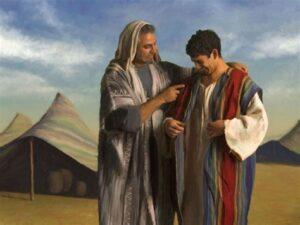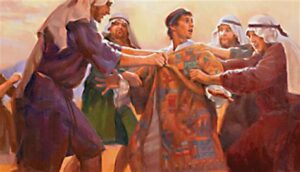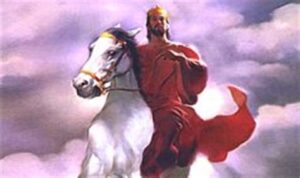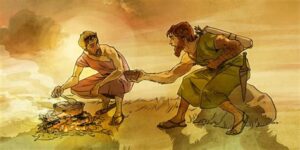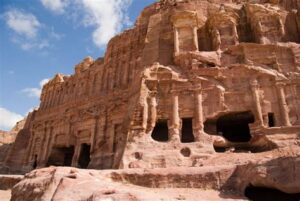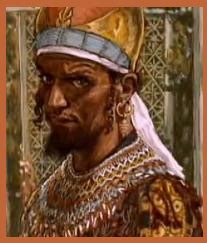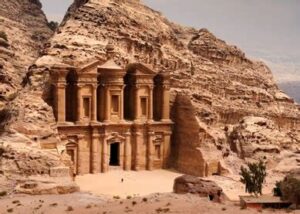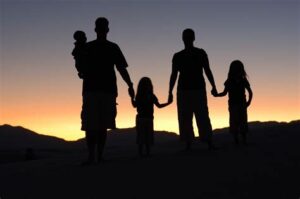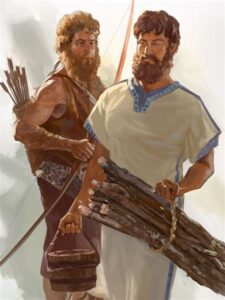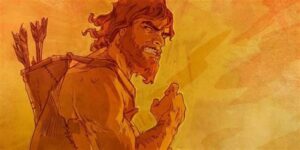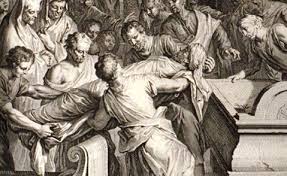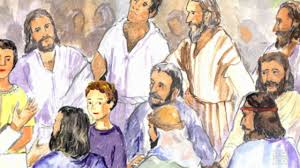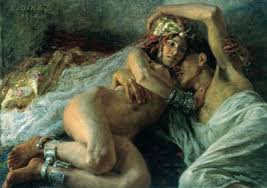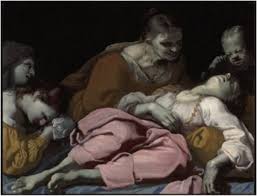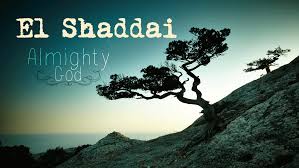Iz – Joseph’s Dreams 37: 5-11
Joseph’s Dreams
37: 5-11
Joseph’s dreams DIG: What do these dreams tell us about how the account of Joseph will end? Why might God give Joseph these dreams at this time? How did God use the hatred of Joseph’s brothers to accomplish His plans for the nation of Isra’el (15:13-14)? What five ways did Joseph foreshadow the life of Christ?
REFLECT: ADONAI uses man’s sinful ways to bring about His own good purposes. How has this happened in your life? All great things are born in a dream. If you have stopped dreaming your dreams, your life is already over. What dreams can you now share with the LORD? Is jealousy avoidable? Explain. How can jealousy be minimized in relationships, especially between believers?
Now Isra’el loved Joseph more than any of his other sons (37:3a). That is too much of a burden for anyone to bear, let alone a teenager. To make matters worse, Joseph was also extremely gifted by ADONAI. He had the ability to both hear the voice of God in dreams and to interpret those dreams, not to mention his administrative talents. ADONAI confirmed Israel’s choice of his faithful son by two dreams, which He influenced upon Joseph’s mind while he slept. God’s revelation was given in different forms in the TaNaKh. He used dreams when His people were leaving or outside the Promised Land. In a dream God had announced to Abraham the Egyptian bondage in the first place (15:13), in a dream God promised protection and prosperity for Jacob in his stay with Laban (28:12 and 15), and by two dreams God predicted that Yosef would rule over his family. The writer to the Hebrews tells us that in the past God spoke to our forefathers through the prophets at many times and in various ways (Heb 1:1). And one of those ways was through dreams.
Consider the power of a dream. Our dreams are the golden ladder by which we climb to heavenly places. Dreams are the mountain peaks of vision that we climb and look into the promised land that God has given us. Dreams are the lantern, by whose light we pass safely through the darkest valley. Dreams are the inner flame in your soul that gives you the strength in the day of adversity to fight through the darkness until the dream comes true. The Bible is full of men who dreamed a dream bigger than themselves. God gave Dani’el a dream and it was so specific that we have been able to follow the parade of prophecy from that day to today. ADONAI gave Joseph, the father of Jesus, a dream and he immediately left for Egypt, saving the life of the Savior. The LORD gave Peter a dream, and the Gentiles of the world are saved today as a result. God gave Rabbi Sha’ul a dream of a man begging him to come to Macedonia to preach, and the church exploded. God gave John a dream and he saw heaven standing open and the Second Coming of our Lord Jesus Christ.555
When Joseph had a dream from the LORD, he showed no hesitation to announce its interpretation to both his father and to his envious brothers. Unfortunately for Joseph, his dream(s) spoke of him being lifted up above his family members for some unknown purposes. All this led to a very troubled household. At least three times in Chapter 37 alone, we learn his brothers hated him all the more (37:4, 5, and 8). This is the first dream recorded in Genesis in which the voice of God does not speak.556 The verb form of the word hated him all the more, wayyosipu, is a word play on the name Joseph, yosep. 7. Joseph was hated for who he was, but he was also hated for what he said. This was also true of our Lord. For this reason, the Jews tried all the harder to kill Him; not only was He breaking the Sabbath, but He was even calling God His own Father, making Himself equal with God (John 5:18). When He said: The Father and I are one, again the Jews picked up stones to stone Him (John 10:30-31). Then Jesus said to them: You are determined to kill Me, but I have only told you the truth that I heard from God (John 8:40).
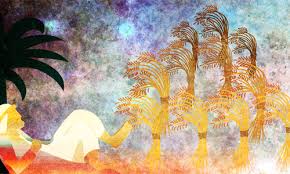
In his first dream Yosef said to his brothers, “Listen to this dream I had. We were binding sheaves of grain out in the field when suddenly my sheaf rose and stood upright, while your sheaves gathered around mine and bowed down to it” (37:6-7). In his dream the sheaves of grain symbolize his brothers, who ended up bowing down to Joseph. God had a plan for his life and Joseph was excited about it. The Ruach ha-Kodesh is silent about his motive for sharing it with his brothers, but whether innocently or out of pride, he did so. The interpretation of this dream is that the field is the earth, and the earth speaks of earthly sovereignty. It spoke of a time twenty-two years later when Joseph’s brothers would be driven to Egypt by famine and they would bow down to a brother they had rejected. 8. And just as Joseph would become the most powerful man on the earth, when Jesus comes back the next time it will be as the Lion of the Tribe of Judah to rule the earth (Revelation 5:5).
Harboring a growing animosity toward Yosef, his brothers said to him, “Do you intend to reign over us? Will you actually rule us?” They totally dismissed his dream because their ill-will could not see anything in it besides Joseph’s own ambition and pride. Predictably, they hated him all the more because of his dream and what he had said about them (37:8). They hated him continually and persistently, and the more they hated him, the more their hatred grew. 9. But nevertheless, Joseph was to enjoy a remarkable future. His dreams were divine announcements of his future exaltation and the same is true of our Lord. A remarkable future was promised concerning the Child who was to be born to Isra’el. The government will be on His shoulders; and He will be called Wonderful Counselor, Mighty God, Everlasting Father, Prince of Peace. Of the increase of His government and peace there will be no end (Isaiah 9:6b-7a). To His mother the Angel Gabriel declared: You will be with Child and give birth to a Son, and you are to give Him the name Jesus. He will be great and will be called the Son of the Most High. ADONAI, God will give Him the throne of His descendant David, and He will reign over the house of Jacob forever; His kingdom will never end (Luke 1:30-33). Both Joseph and Jesus were to enjoy a remarkable future.
Then he had another dream, and he told it to his brothers. Listen, he said, I had another dream, and this time the sun and moon and eleven stars (Revelation 12:1-2) were bowing down to me (37:9). Clearly the eleven stars symbolize his brothers, the sun, his father and the moon his mother. The point of this dream is that the sun and moon and stars are in the heavens, and the heavens speak of heavenly sovereignty. 10. Just as these heavenlies would bow down to Yosef, Jesus is the Lord of the heaven. He is adored by the angels around His throne who constantly sing: Holy, Holy, Holy (Revelation 4:8). He is feared in the heaven, He has crushed the head of the Serpent at the cross. Demons tremble at the mention of His name. The heavens declare the glory of God because the witness of the stars tells His story of redemption (to see link click Lw – The Witness of the Stars).
When Joseph told his father his second dream in the presence of his brothers, this was even shocking to Isra’el. At this point, even his father had difficulty believing this was anything more than Yosef’s own ego, and he rebuked him. Isra’el had already bowed down before his brother (33:3). Must he now bow down before his son as well? Israel’s wives and children had bowed down before Esau (33:6). Must they now bow before their brother?557 Isra’el said to him, “What is this dream you had? Will your mother and I and your brothers actually come and bow down at the ground before you” (37:10)? The inclusion of his parents in this second dream is significant because it tells us that Joseph will not merely be first among his brothers, but sovereign over the entire family, superseding even the importance of his parents. This justifies the inclusion of family members living or dead.558 Rachel had died giving birth to Benjamin (35:18), but this is why she was included in the dream. ADONAI had intended this dream to comfort Joseph in the future when he was facing difficult times. It was not meant to share with his family and he was immature and foolish to do so. Nevertheless, a day would come when they would bow down to him. Dreams do not come with an expiration date.
His brothers were jealous of him. Like Ishmael and Esau before them, they would not recognize God’s sovereign choice of the younger over the older. Instead, his brothers set out on a course to destroy him. And even though Isra’el had rebuked Joseph, he could not help being impressed and, like Mary, kept the matter in mind and pondered it in his heart (Luke 2:19). Isra’el, more than anyone, knew that God could select the younger over the older, and that He could declare His choice in advance by a dream (37:11).559
These two attitudes are typical of people’s reactions to news from the LORD. The brother’s skepticism was emotional and hasty; the father’s open mind was the product of some humility. In his spiritual maturity Isra’el had learned, as his sons had not, to allow for God’s sovereign hand to work in human affairs.560 11. Joseph’s brothers were jealous of him, as the Jews were jealous of the Messiah. In the Parable of the Tenants, the owner of the vineyard sent His Son, whom He loved, thinking, “They will respect My Son.” But the tenants said to one another, “This is the heir. Come, let’s kill Him, and the inheritance will be ours” (Mark 12:6-7). Again, after He had called Lazarus from the tomb and raised him from the dead, the Pharisees said to one another, “See, this is getting us nowhere. Look how the whole world has gone after Him” (John 12:17-19)! And when Jesus was before Pilate, and the crowd had gathered, Pilate asked them, “Which one do you want me to release to you: Barabbas, or Yeshua who is called the Christ?” For he knew it was out of jealousy that they had handed Jesus over to him (Matthew 27:17-18).
What is the difference between a divine dream and an illusion? A divine dream is a divine concept that you have the gift and calling to achieve. An illusion is the state of being intellectually deceived. So, do you have a divine dream or an illusion? There are seven requirements for your dream to come true.
First, define the dream and write it down. If you’re not going anywhere, any road will take you there. Know where you are going. Don’t be afraid to try or fail.
Secondly, divine dreams require great patience. For the revelation awaits an appointed time. Though it linger, wait for it and it will certainly come to pass (Habakkuk 2:3). Joseph’s dream took almost thirteen years to come to pass. Be patient.
Thirdly, divine dreams are often born from pain. Abraham Lincoln stood on the dock of a New Orleans shipyard and saw a child torn screaming from his mother’s arms and sold away. As he witnessed this, he dug his fingernails into his hands until they bled, and he dreamed of a day when the curse of slavery could be removed from America. That dream sustained him through a nervous breakdown, ten political defeats, until eventually he became president of the United States. He signed the Emancipation Proclamation and his dream came true. Don’t stop until you have what God has for you.
Fourthly, divine dreams come from God, not other people. Don’t let others without a dream determine who you are. Look to Him, not the world.
Fifthly, divine dreams are sustained from divine favor from God. Esther received favor from the king, and as she walked in, and if he had not held out to her the gold scepter that was in his hand, she would have died (Esther 5:2). Ruth went into the fields and came home with six measures of barley and a future husband because she was favored of Boaz. There is a phrase that follows Joseph all the way through this story. The Bible says: ADONAI was with him. When the Lord is with you, favor will come.
The sixth thing that will make your dreams come true is that uncommon dreams require uncommon preparation. Joseph prepared for thirteen years, Moses spent forty years getting ready for his ministry, and Jesus prepared thirty years for a ministry that lasted three and a half years. You can live a life without limit if you put your hand in the hand of God.
Lastly, divine dreams create strong adversaries. Joseph’s brothers are going to throw him into the pit and Potiphar’s wife threw him into prison. If you are living without opposition, you are living an illusion. If you have no resistance, you are not doing anything worthwhile.561



